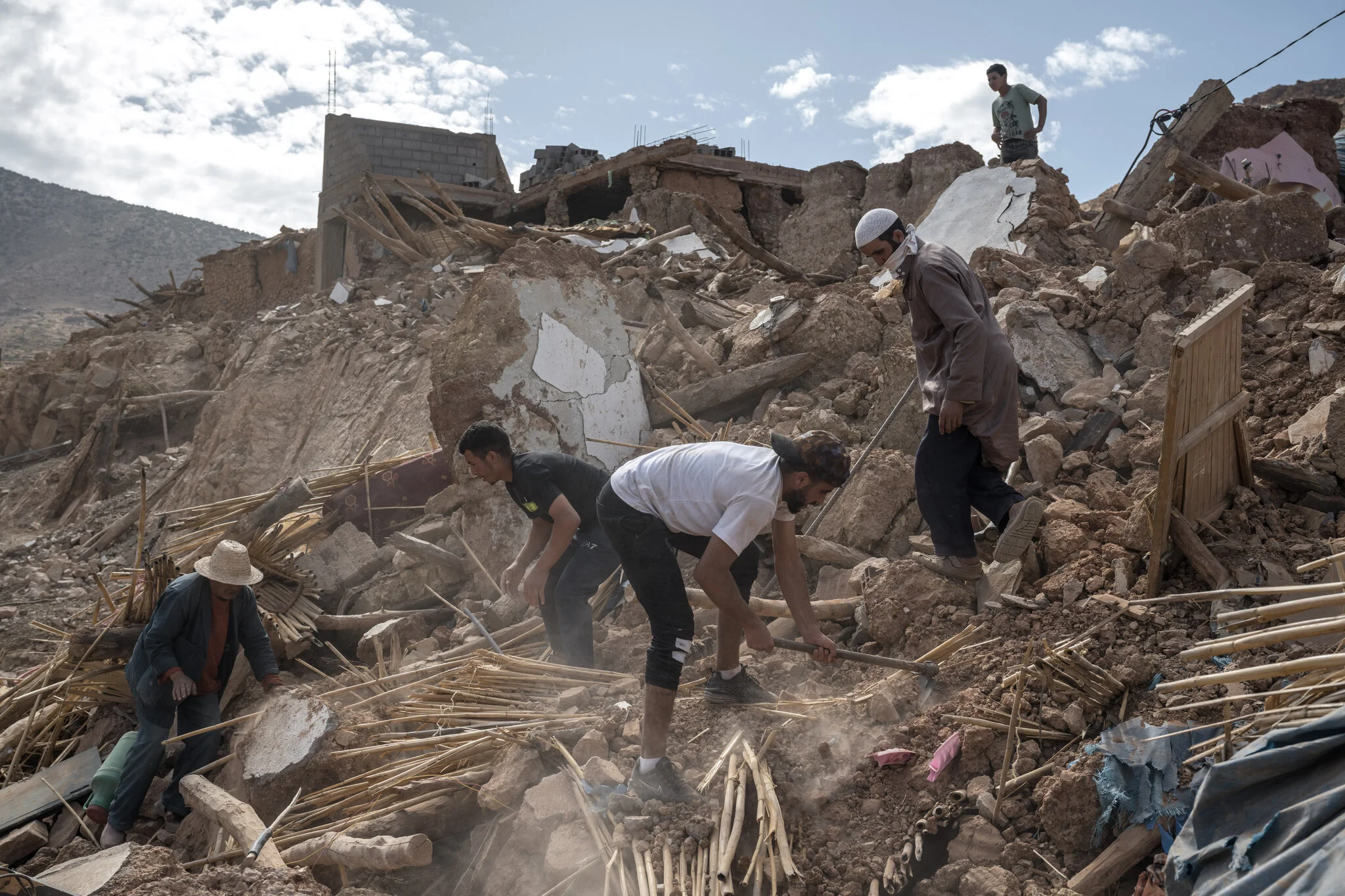Bulletins and News Discussion from September 11th to September 17th, 2023 - Atlas Shrugged - COTW: Chile
Bulletins and News Discussion from September 11th to September 17th, 2023 - Atlas Shrugged - COTW: Chile


Image is from this article in the New York Times.
A magnitude 6.8 earthquake struck Morocco on September 8th, with the epicenter 73 kilometers away from Marrakesh.
At least 2500 people have died as of September 11th, most outside Marrakesh, with more people being pulled out of the rubble every day, making it the deadliest earthquake in Morocco since 1960, and the second-deadliest earthquake this year (first being, of course, the one in Turkiye-Syria in February, which killed nearly 60,000 people). While the deaths are the most horrific part, damage to historic sites has also been very significant - including buildings dating back to the 1000s.
Morocco is situated close to the Eurasian-African plate boundary, where the two plates are colliding. The rock comprising the Atlas Mountains, situated along the northwestern coast of Africa separating the Sahara from the Mediterranean Sea, are being pushed together at a rate of 1 millimeter per year, and thus the mountains are slowly growing. As they collide, energy is stored up over time and then released, and faults develop. The earthquake this month originated on one such fault, as did the earthquake in 1960. The earthquake hypocenter was 20-25 kilometers underground, with 1.7 meters (or 5 and a half feet) of rock suddenly shifting along a fault ~30 kilometers (19 miles) long.
Earthquake prediction is still deeply imprecise at best, and obtaining decent knowledge and forewarning of earthquakes is highly dependent on dense seismometer arrays that constantly monitor seismic activity, such as in Japan, and detailed understanding of the local and regional tectonic environment. The best way to prevent damage is to build earthquake-resistant infrastructure and establish routines for escaping buildings and reaching safety. All of these, of course, are underdeveloped to nonexistent in developing countries, particularly in poorer communities inside those countries.
The Country of the Week, in honour of Allende's death 50 years ago (the only bad geopolitical event that has occurred on September 11th, of course), is Chile. Feel free to chime in with books, essays, longform articles, even stories and anecdotes or rants. More detail here.
Here is the map of the Ukraine conflict, courtesy of Wikipedia.
The weekly update is here!
